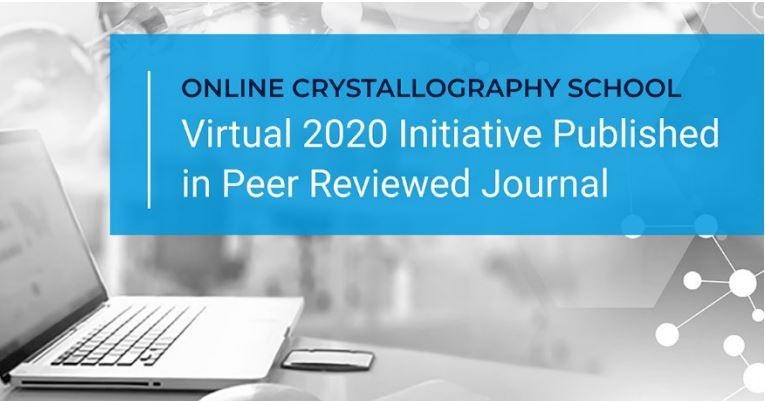The Woodlands, Texas – March 17, 2021 - The COVID-19 pandemic has had a profound effect on life as we know it, including education. In order to fill the void left by the postponement and outright cancelation of in-person schools such as the one run by the American Crystallography Association (ACA), Rigaku has taken a pioneering role establishing an online crystallography school delivered via Zoom.

The work of the school, “Teaching a large-scale crystallography school with Zoom Webinar,” was presented virtually at the 70th Annual Meeting of the American Crystallographic Association in August and subsequently published in the journal Structural Dynamics (Volume 8, Issue 1 2021).
The online crystallography school included live lectures, live Q&A sessions and was delivered at scale to large audiences of up to 750 students with diverse backgrounds in June and July of 2020. The interactive, live, webinar format enabled the organizers to make the school more widely appealing with geographical and travel barriers being removed from the equation. In fact, attendances were maximized with no registration fees, resulting in over 1400 people learning about crystallography
The course consisted of ten 1 hour lectures covering practical aspects of small molecule crystallography including data collection, data processing and structure solution. Advanced topics also addressed included absolute structure determination, twinning, and disorder, which are commonly encountered issues. To provide a well-rounded curriculum, macromolecular crystallography and powder diffraction were also covered.
To facilitate the learning process, the organizers used web-based teaching materials such as slide decks and videos. They also took advantage of key Zoom webinar features such as the chat window, a versatile Q&A tool, and the ability to record the lectures.
Students were also able to put theory into practice using supplied datasets and freely available structure solution software packages, CrysAlisPro and Olex2. Furthermore, all the school materials are freely available from the Rigaku X-ray Forum (https://www.rigakuxrayforum.com/).
At the end of the course, students could partake in an online exam. The exam was built on an in-house designed software platform that pulled questions from a database. This contained a library of questions with varying degrees of difficulty, with each student getting a unique exam. The exam itself consisted of 50 multiple choice questions that had to be completed in 75 minutes. Students had the option of retaking the exam, in which case, they were issued with a new set of questions.
Marking was automatic and results provided instantaneously. A certificate of achievement was awarded to students attending more than 50% of lectures and achieving a grade of 70% or above for the exam. While the exam was not compulsory, 44% and 43% of students took the exam in June and July respectively with pass rates of 89% and 79%. One of the most rewarding aspects of holding the school was our ability to accommodate a deaf student and her palantypist, allowing the student to participate on par with all the other students.
School organizers Joe Ferrara, Paul Swepston, and Fraser White were so pleased with the outcome from the June and July schools that Rigaku held a 5-day Advanced Topics school in December 2020. Rigaku has also begun planning a second Advanced Topics to be held in the middle of June.
Joe Ferrara, Chief Scientific Officer at Rigaku and lead author on the paper commented, “The ACA Summer Course has been cancelled for 2021 and we expect other schools to suffer the same fate. Therefore, we will run a second, expanded advanced topics school in 2021. We are proud to be able to give back to the X-ray community through the Rigaku schools. All the course materials and instructional videos for the three schools we ran in 2020 are available at the Rigaku X-ray Forum.”